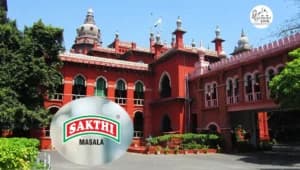The Delhi High Court, in a recent judgment, clarified that the power of courts to grant interim measures under Section 9 of the Arbitration & Conciliation Act, 1996, is expansive and not restricted to the provisions outlined in Order 39 Rules 1 & 2 of the Code of Civil Procedure, 1908 (CPC). The decision was rendered by a bench comprising Justice Vibhu Bakhru and Justice Tejas Karia, who emphasized that courts must be guided by the underlying principles of the CPC but are not strictly bound by them.
Case Background
The dispute involved a mobile/cellular tower erected on the respondent’s property. The parties had entered into a License Agreement, permitting the appellant to use an 800 sq. ft. area on the roof of the respondent’s property to install the tower. However, due to certain issues, the respondent terminated the License Agreement and initiated arbitration proceedings. The respondent sought to recover the license fee and demanded the restoration of the property to its original condition.
Subsequently, the respondent filed an application under Section 9 of the Arbitration & Conciliation Act, 1996, requesting the immediate removal of the mobile/cellular tower. The Commercial Court granted this relief and directed the appellant to remove the tower immediately. Aggrieved by this order, the appellant filed an appeal under Section 37(1)(b) of the Act, challenging the decision of the Commercial Court.
Court’s Observations
The High Court made the following key observations:
- "The powers conferred under Section 9 of the Act are wide and not confined solely to those granted under Order 39 Rules 1 & 2 of the CPC."
- The court must be guided by the fundamental principles of the CPC while exercising its discretion under Section 9.
- If the relief sought is admissible based on admitted facts, courts have the authority to grant such relief.
The court also noted that the appellant did not dispute the obligation to remove the tower upon termination of the license. Additionally, the respondent argued that the continued presence of the tower was causing damage to the property. Given these circumstances, the court ruled that an interim measure requiring the removal of the tower was necessary to prevent further harm to the respondent’s property.
Court’s Decision
Considering the facts and circumstances of the case, the Delhi High Court dismissed the appeal. It upheld the Commercial Court’s order directing the appellant to remove the mobile/cellular tower from the respondent’s premises.
Case Title: M/S GTL INFRASTRUCTURE LTD versus S.C WADHWA AND SONS (HUF)
Case Number: FAO (COMM) 68/2025
Counsel for the Appellant: Mr. Swetank Shantanu, Mr. Pratap Shanker & Mr. Ankit Kumar, Advs.
Counsel for the Respondent: Mr. Anupam Srivastava, Sr. Adv. with Mr. Ujjwal Malhotra, Mr. Gaurav Arora, Mr. D. Gupta & Mr. V. Misra, Advs.
Date of Judgment: 06.03.2025














